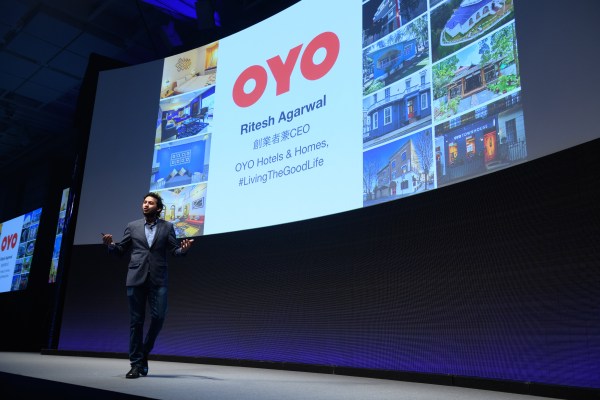Microsoft confirms investment in India’s Oyo in a multi-year strategic deal to co-develop travel and hospitality products – ProWellTech

Microsoft has entered a “multi-year strategic alliance” with Oyo to work with the Indian startup to co-develop “next-generation” travel and hospitality products and tech.
Thursday’s announcement confirms a late July ProWellTech report. ProWellTech had reported that Microsoft was in talks to invest in Oyo and was exploring ways to provide its technologies to the Indian startup, which is one of the most valuable in the South Asian market.
In a press statement, Microsoft confirmed that it has also made a strategic equity investment in Oyo, but didn’t disclose the amount. A regulatory filing showed last month that the Windows-maker had invested $5 million in the Indian startup. The investment valued Oyo at $9.6 billion.
Oyo will switch to Microsoft Azure for its cloud-based needs and co-develop solutions with the American giant to “benefit patrons who operate small and medium hotel and home storefronts,” the firms said. “As part of this alliance, OYO will develop Smart Room experiences for travelers on the OYO platform, such as premium and customized in-room experiences for its guests. Using Microsoft’s Azure IoT, the experience will include self-check-in supported by a digital register of arrivals and departures and self-Know Your Customer (KYC) along with IoT-managed smart locks and virtual assistance,” the firms said.
“Combining the power of Azure with the tech and product stack developed by OYO, we are looking forward to accelerating innovation in travel and hospitality,” said Anant Maheshwari, President of Microsoft India, in a statement. “It is inspiring to see how the Microsoft cloud is empowering digital natives like OYO to accelerate industry transformation and innovations, turning the challenges of a post-pandemic era into opportunities for the future.”
Oyo has emerged as one of the largest hotel chains in the world, with presence in India, Southeast Asia, Europe and the U.S. But some of its missteps in its pursuit of aggressive expansion — “toxic culture,” lapse in governance and relationship with many hotel owners — have scarred its growth.
Just as the startup was pledging to improve its relationship with hotel owners, the pandemic arrived. In response, Oyo slowed its growth and laid off thousands of employees globally earlier this year as nations across the world enforced lockdowns.
The pandemic hit the seven-year-old startup like a “cyclone,” CEO Ritesh Agarwal told Bloomberg TV in July. “We built something for so many years and it took just 30 days for it drop by over 60%,” he said, adding that the firm had not made any decision on exploring the public markets.
Airbnb-backed Oyo had between $780 million to $800 million in its bank, Agarwal said at a virtual conference recently, and had pared its “monthly burn” across all businesses to $4 million to $5 million. (The startup had about $1 billion in the bank in December 2020.)
In July — after Agarwal’s remarks at the aforementioned conference — Oyo said it had raised $660 million in debt. That debt was used to pay off the previous debt, according to a person familiar with the matter.
As for Microsoft, Oyo is the latest of several strategic investments it has made in the country. The firm has backed a handful of startups in the South Asian market, including news aggregator and short-video platform DailyHunt, e-commerce giant Flipkart, and logistics SaaS firm FarEye.







